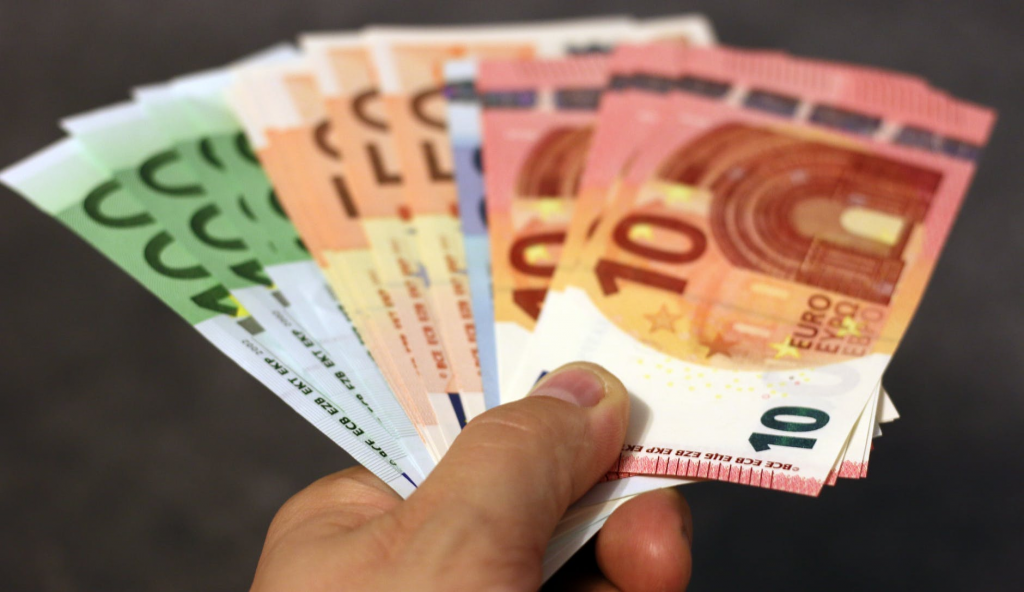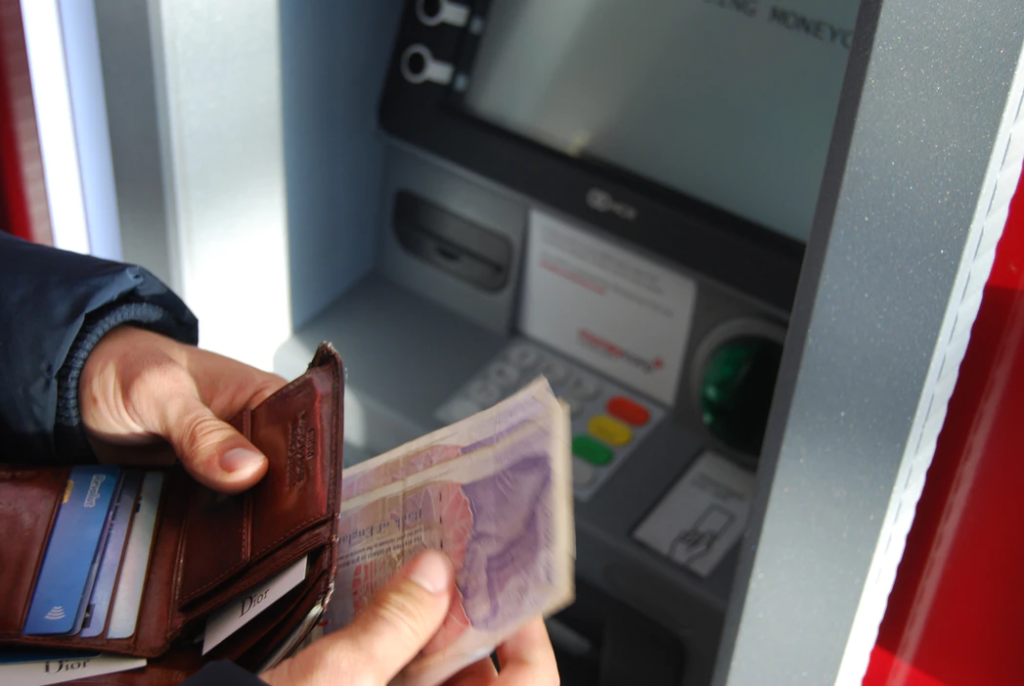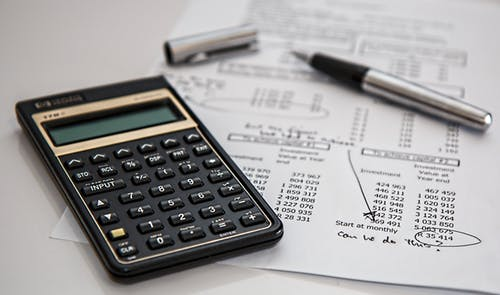Some people will do anything to save money: water down soap, cut hundreds of coupons, or even go dumpster diving for free food. But saving extra cash doesn’t have to be so difficult and time-consuming. There are many things you can do today to help save some extra cash, and with that extra savings you can invest and grow your money even more, creating a compounded benefit.

Here are 10 ways to save extra cash in the coming year.
Get a no-fee bank account
If you are paying monthly fees for a basic checking or bank account, stop! The banking world has been upended by new technology and digital banking options, making it easy to find a bank with no-fees. The best place to start your search is digital-only banks, which have rid themselves of brick-and-mortar branches to cut costs and pass the savings on to you. Some of the big name options in Europe include Revolut, N26, and Monzo.

Sell useless stuff
Before the internet, it was a hassle to sell your unwanted household items. eBay was the first company to make it easy for anyone to sell their unused clothing, appliances, tech gadgets, and everything in between. Now there are even more places to sell your useless stuff. With Facebook Marketplace you can sell products on your favorite social media platform, and maybe even make a sale to one of your friends. On Craigslist you can sell to your local community and you can use Etsy to sell any crafts or homemade art which you are looking to get rid of. Vinted is another great marketplace which specializes in secondhand clothing.
There are so many places today in which you can sell your unwanted goods. Not only will this make you extra cash, it will clear out the clutter in your home that has been bothering you for years.
Cancel unused subscriptions
The subscription-based business model is more prevalent than ever. You can subscribe to anything from socks to groceries, to razor blades, and everything in between. Subscriptions have become so universal that some people have more than 20 subscription services active at one time! These subscriptions can result in poor financial decision making. In fact, one survey found that 84% of Americans underestimate their monthly spending on technology-based subscription services. Sure, getting your socks delivered one per month sounds great, but do you really need it?
Actively managing your subscriptions will make it clear which services you no longer need. Check your bank statements each month to see what subscription services you are currently using and determine if there are any subscriptions you could do without. Or, if you want help making sure you aren’t paying for things you don’t use, apps like Truebill and Trim are there to help. These apps will track your recurring expenses and alert you if it appears you are making a recurring payment that seems out of place.
Don’t worry, we aren’t telling you to cancel your Netflix subscription, we know you can’t live without that!
Stop paying extra for drinks
Ever wonder why a gin and tonic costs three times as much at a bar than it does when you make it at home? Going out for drinks means paying a premium on something you could be getting for cheaper, yet people enjoy paying extra for drinks at a bar because of the social aspect. And it’s not getting any better, as bars are increasing the prices of drinks in recent years almost across the board.

This is where house parties can save you some extra cash. Consider inviting friends and/or family members over for a house party. You can even ask everyone to bring a food or drink item to keep the cost down and create a fun atmosphere of sharing.
Quit smoking
If you are a smoker you probably don’t want to be hearing for the hundredth time about the negative health effects of your bad habit. Instead, why don’t you think about how smoking negatively impacts your finances.
In Germany alone, smoking costs the country €79 billion in a single year, with the average smoker spending more than €1,000 per year of their own money to maintain the habit. This cost is important, because smokers are averse to losing money like everyone else. A study on the relationship between price and cigarette consumption in Europe found, “On average, in Europe smoking consumption decreases 5–7% for a 10% increase in the real price of cigarettes strongly supports an inverse association between price and cigarette smoking.
Quit smoking, it won’t only make you feel better, it will add some weight back to your wallet.
Save energy
Conserving energy in your home is one way you can save money while helping the planet at the same time. There are many ways to save energy:
- Take shorter showers
- Turn off the tap while brushing your teeth or doing the dishes
- Turn off the lights in every room that is not being used
- Purchase energy-efficient appliances
You can use a calculator to figure out how much energy you are consuming via your household appliances and put a monetary value on your energy consumption. Then, figure out how much energy you can save through these methods. You might be surprised how much savings you can gain just from these simple energy-saving tricks.
Check out free social events
Sure, everyone wants to see Beyoncé in concert, but not everyone can afford the €100 tickets. Instead, check out free events in your area. Local free events such as sports matches, concerts, and museums are great ways to have fun with the family while keeping cash in your pocket.
Meetup is a site dedicated to bringing people together in ways that often don’t require any money. There are Meetups for any kind of interest, from learning a new language to hiking. Alternatively, if you live in a big city, like London or Berlin, chances are you can also find free concerts, shows, and other entertainment if you search hard enough.
Make smart online purchases
It is always a bad feeling when you realize that you have just paid more for a purchase than needed. Prices vary across stores and websites so much that you could be overpaying for many of your online purchases.
One way to not overpay is to stay away from impulse buying. The ease of making purchases online means that it is easier than ever to fill your cart with items you don’t need and checkout in seconds. This causes people to spend much more money than they had planned when shopping on the web. Don’t use your free time to aimlessly shop the web, and instead, only make directed purchases of things you know are necessities.
You can also reduce your spending as much as possible while shopping online via online retail apps and tools. Wikibuy and Honey are both tools that ensure you are getting the lowest price on the exact item you are looking to purchase by scouring the web for the same item on other websites. RetailMeNot is a great resource for online coupons at your favorite stores.
Use cashback sites
On top of finding the best price for your online purchases, you can also utilize cashback sites to put money back into your pocket. These cashback sites can offer as much as 10% back from an online purchase depending on the store.
These cashback sites include:
All you have to do is go to one of these cashback sites and click the link to your favorite store. Then, just shop as you normally would and the cashback will show up in your account in the next several days. Just be warned, you won’t be able to take any cash out of your account for several months. Regardless, this is an extremely easy way to make money while shopping.
Budget for the future
It’s easier than ever to plan for your financial future. These days you don’t need advanced skills in Microsoft Excel just to create a basic budget or track your spending, there are a whole host of financial apps you can use to understand your current financials and plan for the future. Apps like Mint are built to track your spending and account balances in real-time, while other financial tools such as YouNeedABudget will give you total control over your finances and teach you how to create a budget.

As a rule of thumb, you should try and save 10% of your income each year in order to plan not only for retirement, but for any unexpected expenses — such as healthcare, home repairs, vehicle maintenance — that you could incur in the future.
Saved some money? Consider investing
Now that you’ve saved extra cash, what are you going to do with it? The most prudent financial decision would be to invest the money to grow it over time.
Stock market
Online platforms, such as Bondora, allow you to invest your money in p2p loans with just a few clicks of the mouse. In fact, Bondora has an automated investment product called Go & Grow which provides investors with a return up to 6.75%* p.a.
Savings account
A traditional method of storing money is a savings account. These accounts are some of the safest ways to save money, but don’t come with a great return. Most savings account return less than 1%, and if you find an account with a rate of 2% or more, consider yourself lucky.
It all counts
Some of these methods of saving extra cash might not seem like much, but collectively they can lead to significant savings. Even if you only use 5 of the methods discussed in this post, and are able to save €100 with each method, that’s still a savings of €500!
Savings strategies like that could be the difference between you feeling more comfortable about your financial future, and stressing about how you will afford everything the necessities for you and your family. So, be smart about how you spend money and save yourself some extra cash in the coming year.
*As with any investment, your capital is at risk and the investments are not guaranteed. The yield is up to 6.75%. Before deciding to invest, please review our risk statement or consult with a financial advisor if necessary.